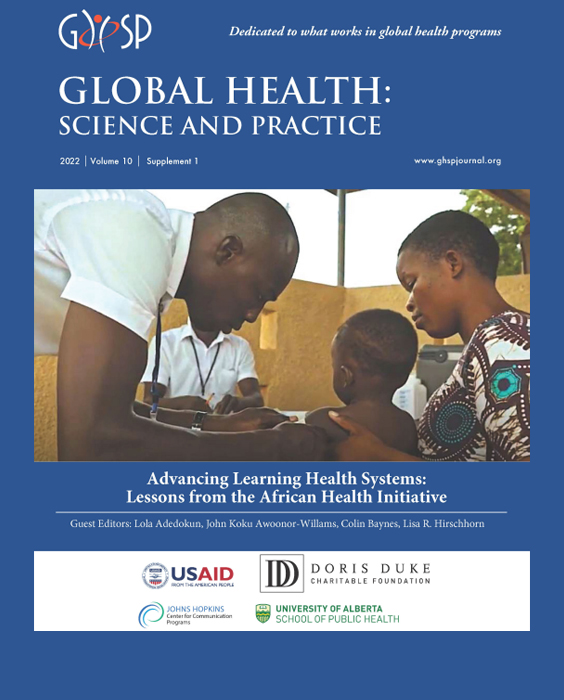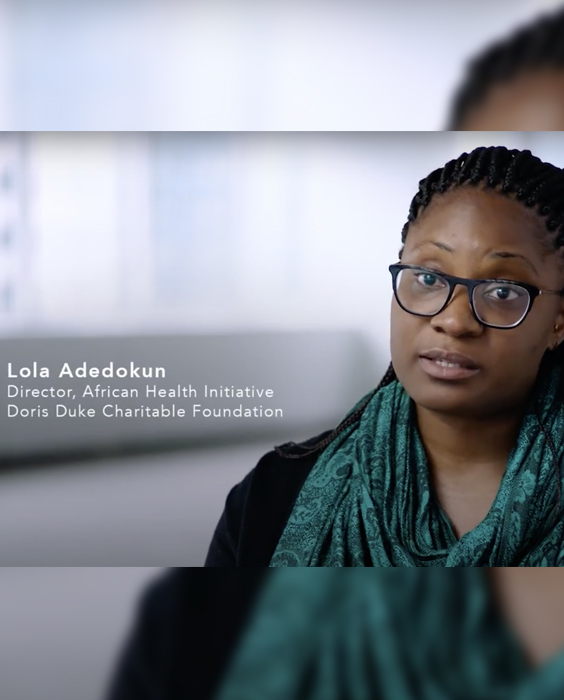The African Health Initiative (AHI) seeks to catalyze significant advances in strengthening health systems by supporting partnerships that will design, implement and evaluate large-scale models of care that link implementation research and workforce training directly to the delivery of integrated primary healthcare in sub-Saharan Africa. This page summarizes one of five Population Health Implementation and Training (PHIT) Partnership projects that were supported through the AHI.
Strengthening and Studying Community-Based, Integrated Primary Health Care Systems in Rural Rwanda
Grantee Institution:
Brigham and Women's Hospital, Inc.
Team Leaders:
- Peter Drobac, M.D.
Partners in Health, Rwanda
- Lisa Hirschhorn, M.D., M.P.H.
Harvard Medical School, Harvard School of Public Health, Partners in Health, Rwanda
- Felix Cymatare, M.D.
Partners in Health, Rwanda
Project Summary:
Together, Brigham and Women's Hospital, Partners In Health (PIH), PIH Rwanda and the Rwandan Ministry of Health (MOH) worked to strengthen health systems in two districts, South Kayonza and Kirehe (pop = 460,000), in eastern Rwanda over a six-year period. The approach included interventions aimed at making significant improvements to each of the six health systems building blocks described by the World Health Organization (WHO). Rwanda's second Health System Strategy Plan (HSSP-II) outlined a number of goals that correlate directly with these six domains, thus facilitating our effort to offer an approach to improving population health that integrates both WHO and Rwandan MOH priorities.
Within each of the two intervention districts, implementation took place across four distinct levels: (1) community health worker, (2) health center, (3) district hospital and (4) district leadership. The intervention's five primary activities were designed to strengthen all of the domains outlined by the WHO across each of these four levels, with varying degrees of intensity.
The first of these five activities was the implementation of a novel training program for nurses called "Mentoring and Enhanced Supervision of Healthcare (MESH)," designed to improve the overall quality and effectiveness of health center-based care. The next two activities focused on strengthening the district hospitals and health centers within the intervention area. The fourth activity focused on implementing an enhanced network of community health workers (CHWs). The project CHWs provided a number of services and activities not offered by those CHWs trained by the Rwandan MOH, with the goal of increasing effectiveness and quality of care. The fifth strengthening activity was the implementation of a robust monitoring and evaluation system with feedback systems to improve care at all four district intervention levels.
In addition, existing health information systems and other national surveys, in combination with data collected by the project, were used to measure the impact of the intervention. Initial results confirm the potential of this approach to strengthen health systems. Ongoing evaluation will measure its longer term impact on improving coverage and overall population health.
For more information, please visit the Partners In Health, Rwanda website.
To view publications about this project, please visit the Phase 1: Rwanda PHIT Partnership Publications page.
Read about the other four Phase 1 PHIT Partnership projects by visiting the links below:






